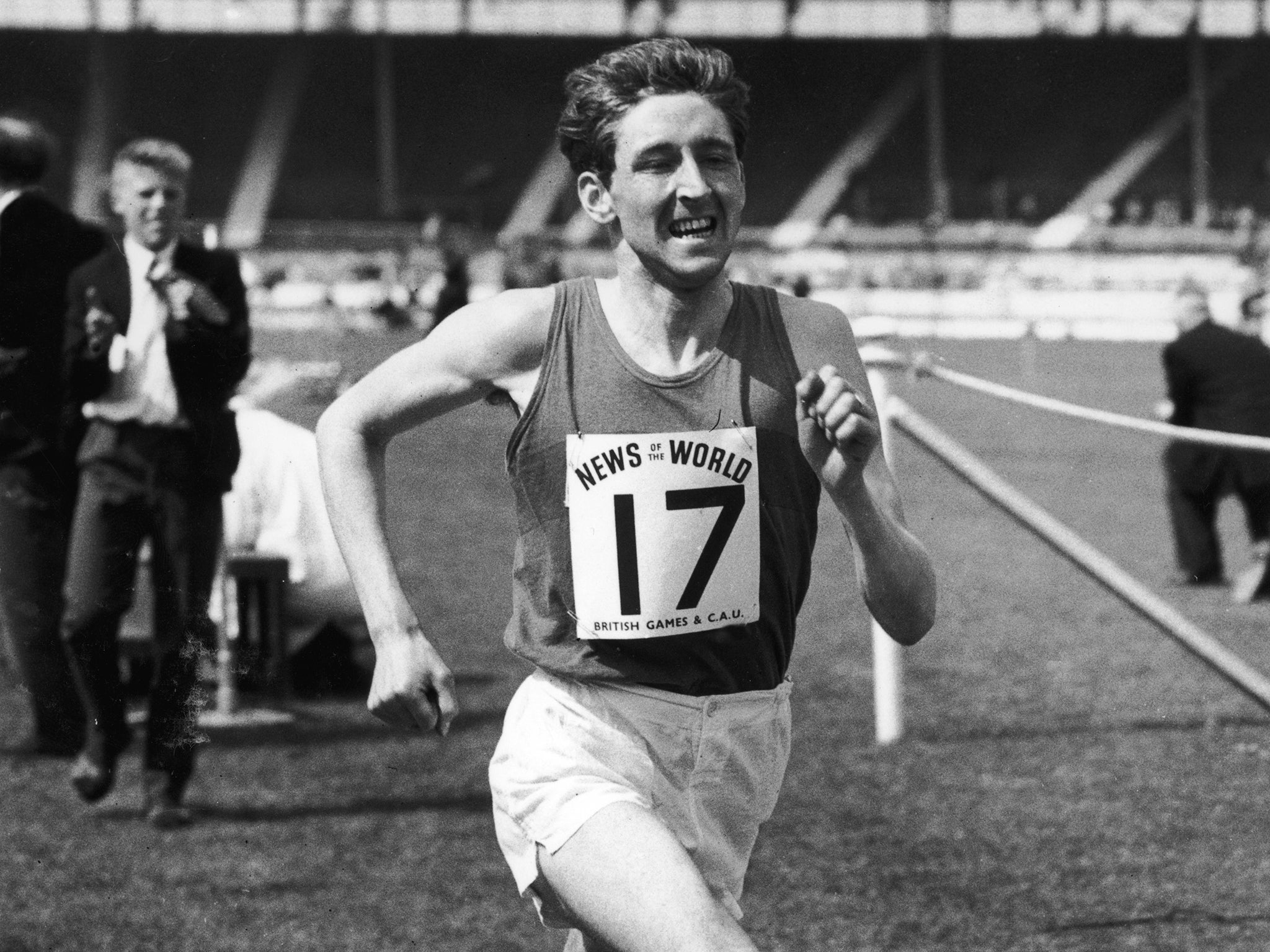Ron Hill: Decorated distance runner and marathon record-breaker
The distinguished athlete earned medals for Britain at many prestigious events around the world

While by profession a distinguished textile chemist, Ron Hill, who has died aged 82, was also one of the most significant and forward-looking figures involved in British distance running throughout the second half of the 20th century. Only the second man to break the two-hour, 10-minute barrier for the marathon, he went on to smash numerous world and Commonwealth records. He was a triple Olympian, competing in Tokyo, Mexico City and Munich, and during 1970, he became the first Briton to win the Boston Marathon. Never missing a day’s running between 1964 and 2017, some 19,032 days later, this pioneering dietary innovator also excelled as a sportswear manufacturer with his own brand of running clothing.
Growing up in the Lancashire mill town of Accrington, Ronald Hill’s obsession with running was initially fuelled by the comic book character, Alf Tupper. Regularly featured in both The Rover and The Victor, this tough northerner would put in a shift as a welder before hitchhiking to London, where he beat the world’s finest athletes.
Hill himself won a scholarship to Accrington Grammar School and, while excelling academically, invariably dominated its cross country championship. Aged 13, he joined Clayton-le-Moors Harriers, further honing his sporting credentials while studying textile chemistry at Manchester University. Armed with a doctorate, he subsequently went to work for Courtaulds as a textile chemist at Droylsden in Tameside, Greater Manchester.
Hill first came to wider prominence in August 1961 when competing in his first major event, the Liverpool City Marathon. He won the race, which finished in a packed Anfield football ground before a pre-season friendly, comfortably. Twelve months later came further success in the Polytechnic Harriers Marathon. In 1965, he broke the last two of Emil Zátopek’s world records, at 15 miles and 25,000m.
One of the first elite athletes to occasionally compete barefoot, between 1965 and 1968, he captained England’s cross country team, twice winning the English national title. In both 1964 and 1968, he came second in the International Cross Country Championships. While on the track, he had world best times over 25km, 15 miles and 10 miles. On the road, he set a record for 20 miles.
Fast approaching his peak during 1969, that year he won gold at the European Championships, held over the original marathon course in Athens. For many, Hill’s time of 2.09.28 to capture the 1970 Commonwealth title in Edinburgh should have been recognised as a world record. A year earlier, Australian athlete Derek Clayton had run 2.08.33 in Antwerp, but on a course rumoured to have been short by some 500m.
Hill then confirmed his status as the best long-distance athlete in the world by winning the 74th Boston Marathon in a new record time. In those amateur days, the trip was only made possible when members of the Road Runners Club had a whip-round to fund his airfare. He was rewarded with a medal, a bowl of soup and a laurel wreath.
Olympic success, however, proved more elusive. After finishing eighteenth in the 10,000m and 19th in the marathon at Tokyo in 1964, Hill knuckled down and trained even harder. Four years later, he improved, moving up to seventh place in the 10,000m event held amid the altitude of Mexico City.
He was the favourite for the marathon title at the 1972 Munich Olympics, but the terrorist attack on the Israeli Olympic team forced the race to be delayed by 24 hours. Despite severely disrupting Hill’s strict scientific preparations, he did finish a highly creditable sixth.
He retired from elite running soon after but never ceased to keep in touch with the sport’s grassroots. Having won the inaugural Freckleton Half Marathon in 1965, he remained a regular participant.
Hill notably pioneered the use of a glycogen-depletion diet, carbo-loading by consuming large amounts of carbohydrates, often in the form of pasta, during the lead-up to a race.
He left the industry in 1975 and sank his entire savings of £300 into creating Ron Hill Sports. He focused on increasing the use of synthetic fabrics in sportswear, and his range included the popular tracksters – complete with stirrups – as well as many early versions of high-visibility jackets. At one point, sales topped £6m, but the company ran into difficulties during the financial recession of the early 1990s, and Hill sold out. He later moved on to designing and manufacturing sports socks.
Having raced in 100 countries and competed in 115 marathons, winning 21 of them, Hill’s 1982 autobiography, A Long Hard Road, provides a rare insight into that period of British athletics when runners worked full-time and fitted training in and around work and family commitments. Generally blessed with remarkably good health despite Harold Shipman being his local doctor, he struggled with the onset of dementia in recent years.
Hill married May Robinson in 1960. She and their two sons survive him.
Ron Hill, athlete and businessman, born 25 September 1938, died 23 May 2021

